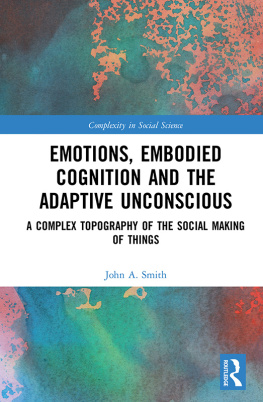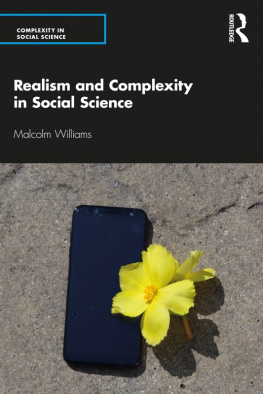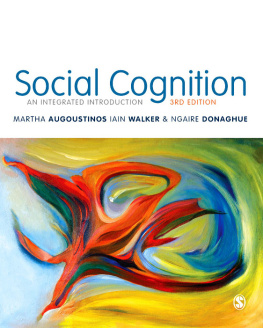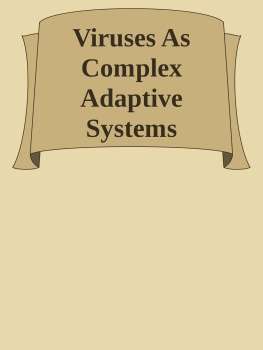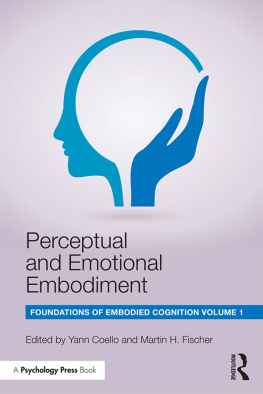John A. Smith - Emotions, Embodied Cognition and the Adaptive Unconscious: A Complex Topography of the Social Making of Things
Here you can read online John A. Smith - Emotions, Embodied Cognition and the Adaptive Unconscious: A Complex Topography of the Social Making of Things full text of the book (entire story) in english for free. Download pdf and epub, get meaning, cover and reviews about this ebook. year: 2020, publisher: Routledge, genre: Romance novel. Description of the work, (preface) as well as reviews are available. Best literature library LitArk.com created for fans of good reading and offers a wide selection of genres:
Romance novel
Science fiction
Adventure
Detective
Science
History
Home and family
Prose
Art
Politics
Computer
Non-fiction
Religion
Business
Children
Humor
Choose a favorite category and find really read worthwhile books. Enjoy immersion in the world of imagination, feel the emotions of the characters or learn something new for yourself, make an fascinating discovery.
- Book:Emotions, Embodied Cognition and the Adaptive Unconscious: A Complex Topography of the Social Making of Things
- Author:
- Publisher:Routledge
- Genre:
- Year:2020
- Rating:4 / 5
- Favourites:Add to favourites
- Your mark:
Emotions, Embodied Cognition and the Adaptive Unconscious: A Complex Topography of the Social Making of Things: summary, description and annotation
We offer to read an annotation, description, summary or preface (depends on what the author of the book "Emotions, Embodied Cognition and the Adaptive Unconscious: A Complex Topography of the Social Making of Things" wrote himself). If you haven't found the necessary information about the book — write in the comments, we will try to find it.
Emotions, Embodied Cognition and the Adaptive Unconscious argues for the need to consider many other factors, drawn from disciplines such as socio-biology, evolutionary psychology, the study of the emotions, the adaptive unconscious, the senses and conscious deliberation in analysing the complex topography of social action and the making of things.
These factors are taken as ecological conditions that shape the contemporary expression of complex societies, not as constraints on human plasticity. Without foundations, complex society cannot exist nor less evolve. This is the familiar pairing from complexity theory: path dependency and dynamic emergence. Inter-disciplinary and complexity perspectives need to be incorporated into the social sciences. Routinely, sociologists think of social phenomena as a distinct field, expressed in the term: the social constructionof without apparent need to refer to other material, biological, psychological, material or ecological conditions or agents.
This book shows how the familiar sociological dynamics of identity, solidarity, differentiation and communication are shaped through the persistent interaction of unconscious and affective processing with conscious deliberation in newly emergent contexts. It is this re-expression, not the surpassing, of human characteristics in contemporary social action that needs to re-inform a complex, ecological approach to the theory and methodologies of the social sciences. The book is intended for a postgraduate/research audience and doctoral students to introduce and synthesise inter-disciplinary contributions to research into complexity theory in the social sciences.
John A. Smith: author's other books
Who wrote Emotions, Embodied Cognition and the Adaptive Unconscious: A Complex Topography of the Social Making of Things? Find out the surname, the name of the author of the book and a list of all author's works by series.

